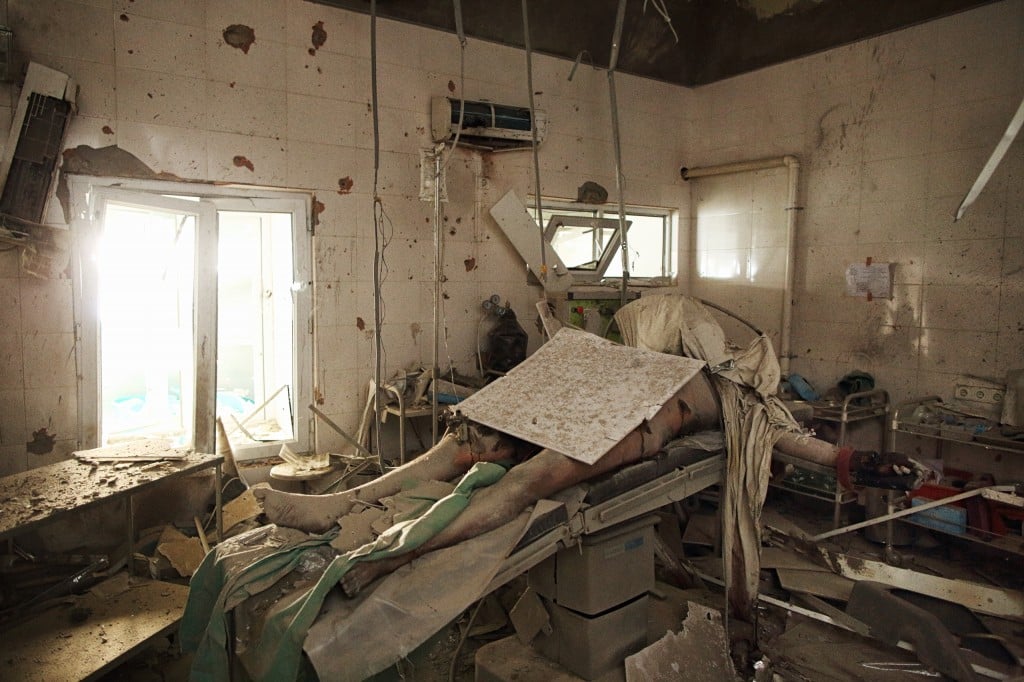|
Baynazar Mohammad Nazar was a husband and a father of four — and a patient killed during the [US] attack on the MSF hospital in Kunduz. This is his story.
In the first operating room, the surgical bed was empty except for a thin layer of concrete dust. The second room had been harder hit. A man’s body, arms and legs outstretched, lay supine on the operating table with a cannula inserted in his left forearm. Blotches of rust-colored antiseptic stained his torso; there was a steel bracket fixed to his right thigh. A surgical curtain had collapsed across his chest and shoulders above where a ceiling panel lay across his abdomen. On the cushioned head support, the patient’s bearded jaw was all that remained of his head — the rest appeared to have been sheared off by shrapnel or a large ammunition round.
 In the corridor outside the operating rooms, a slew of broken ceiling panels lay on the floor covered in dust and debris; a whiteboard hung askew on the wall. Even in the middle of the afternoon, apart from the occasional pop of a Kalashnikov firing in the distance, this part of the hospital was silent and dark. In the corridor outside the operating rooms, a slew of broken ceiling panels lay on the floor covered in dust and debris; a whiteboard hung askew on the wall. Even in the middle of the afternoon, apart from the occasional pop of a Kalashnikov firing in the distance, this part of the hospital was silent and dark.
The main part of the Médecins Sans Frontières Kunduz Trauma Center had faired far worse. Little remained after the deadly strikes carried out by a U.S. AC-130 gunship over the course of an hour. In the weeks after the attack, investigators determined that at least 30 staff and patients had died on Oct. 3. Initially, Afghan commandos claimed they had requested the airstrike after coming under fire from Taliban fighters in the hospital compound. Afghan government officials echoed this account, while a dozen eyewitnesses I spoke to refuted it. A U.S. military investigation released on Nov. 25 admitted human error and technical failures resulted in the “tragic but avoidable accident.”
For complete article by Foreign Policy click here
|